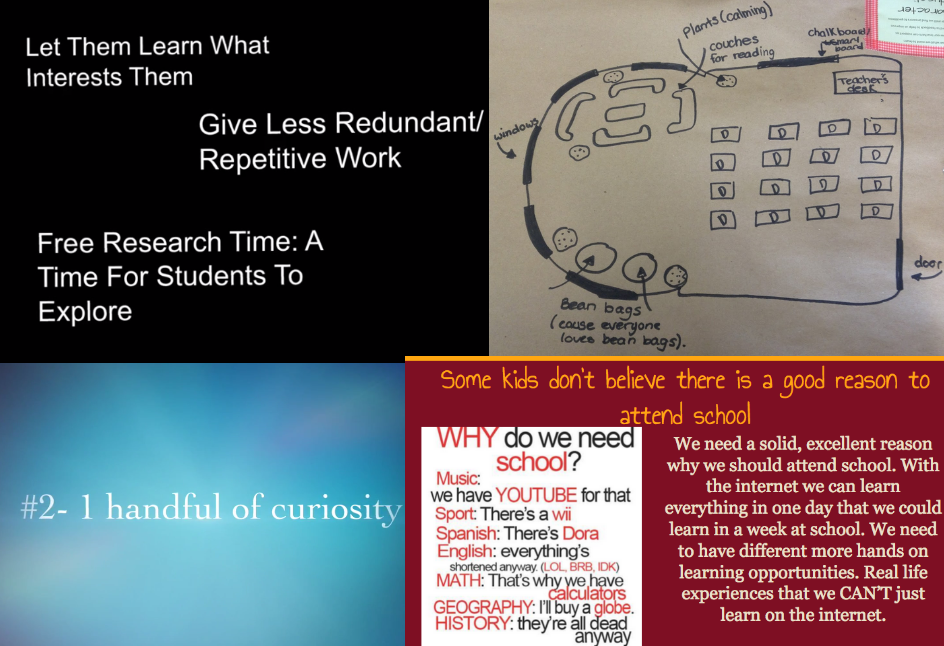Let Students Help Drive Change
A couple of weeks ago I wrote about our efforts to consult with students to plan a large event as part of our board’s commitment to the
New Pedagogies for Deep Learning global partnership. A group of 40 students from 13 different schools ranging from grade 4
to grade 12 gathered in a sunny library to discuss the meaning of deep learning
and work on some guided inquiry projects while their parents, teachers, and
administrators met elsewhere in the building.
As facilitators we did not know what to expect from these
students. We did not know the majority of them personally and did not know what
skills they were bringing to the table. We were not sure how much guidance they
would need to use the computers and iPads, perform research, or create
presentations to share their learning. We were not sure whether they would come
to the event with inquiry mindsets, collaboration skills, or curiosity. Faced with
so many unknowns our planning was uncomfortably open-ended; there were more
question marks on the agenda than any of us would have liked.
We were very lucky to be joined by some special guests,
whose presence at the event inspired students, staff and parents. Our
guests were brothers; one a grade 12 student in our board, the
other in university. They shared their personal story of how they loved to
build and create as kids, and that in their desire to create they saw a need for
a 3D printer. This technology was too expensive for them to purchase, so they
solved this problem by building their own 3D printer. Their description of
their desire to create something, their ability to become part of a global
online open-source 3D printing community, their perseverance through
difficulties, and their honest expression of pride in their work was truly
inspiring for our students at the start of the day. A fan club quickly grew
around the 3D printer with students drifting to and from the station throughout
the day. Our guests' enthusiasm and willingness to answer questions never
waned.
With the 3D-printer running in the background, our student
cohort dove into their inquiry projects with as much confidence as we had hoped
they would. Some student chose from a selection of open-ended inquiry questions
while others created their own. Several groups tackled questions about
designing better classrooms, libraries, and playgrounds. Other students set out
to overhaul school in its entirety. One young lady came up with the recipe for
success, using her cellphone to create a video to explain it to the world. A secondary
student boldly explained in a recorded soliloquy why he thinks students fail in
school (hint: it has something to do with suppressing students’ choices and
interests). As facilitators we spent our time troubleshooting technology,
documenting student work, and simply listening to students’ ideas and
discoveries. It was hectic but blissful. It made me miss my classroom.
If I had my way I would have loved to keep these students
together for a week or more, sharing their opinions and experiences with each
other and trying to create a deeper understanding of the possibilities for our
NPDL initiatives.
I would also love to extend this invitation beyond the realm
of our designated NPDL schools and see student voice continue to play a larger
role in shaping growth and learning in all of our school communities.

Comments
Post a Comment